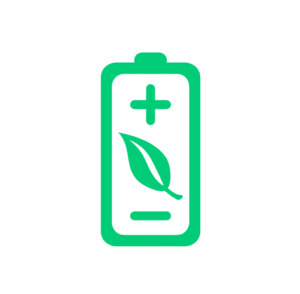LFP renewable energy technology and batteries

Batteries with state-of-the-art technology
LFP (lithium iron phosphate) is a state-of-the-art lithium-ion based battery technology that uses LiFePO4 material as the cathode material and graphite carbon electrode as the anode. Thanks to its long life and minimal maintenance, it is currently the best technological battery solution.

Longer lifespan for renewable energy use
The high chemical stability of the battery cells and the extremely strong lithium iron phosphate crystal structure make it possible to prevent the degradation of LiFePO4 batteries. Battery manufacturers guarantee that during the first 6,000 charging cycles the battery efficiency is maintained at least 80%. The life of a battery in daily use with one charging cycle is therefore 16 years on average if used correctly. A long lifetime ensures high profitability and also greater environmental friendliness, because the need for rare raw materials used in the production of batteries is lower overall.

Higher security in the storage of renewable energy
LFP battery cells use a lithium iron phosphate cathode instead of a metallic lithium cathode, which is less sensitive to temperature changes due to its low reactivity. This gives the battery cells better thermal and chemical stability, which significantly reduces the risk of fire due to possible overcharging and short circuits.

Faster charging of batteries
Compared to traditional lead-acid batteries, lithium batteries have a significantly lower internal resistance, which enables fast charging and discharging of energy.

Lighter battery weight
Compared to lead batteries, LFP batteries are up to 70% lighter. The energy density and weight ratio of LFP batteries is between 0.125-0.160 kWh per kilogram of weight.

Maintenance-free option
LFP batteries do not require maintenance, do not contain heavy metals or corrosive materials. However, LFP installation location and temperature can affect their performance. All lithium batteries contain a battery management system (BMS) that automatically monitors the temperature, charging current and voltage of each battery cell.

More efficient storage of renewable energy
More efficient storage of renewable energy The efficiency of LFP batteries is very high and can reach up to 98 percent. Compared to other battery technologies, LFP batteries not only have a higher number of charge cycles, but also a higher energy conversion efficiency. LFP batteries maintain their charge level for a long period, their self-discharge rate is very low. Therefore, the energy loss is lower and the efficiency is higher.
